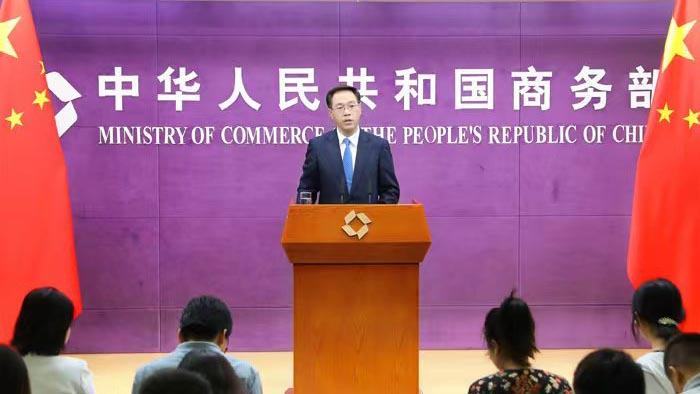

China and the U.S. will hold the 12th round of high-level economic and trade consultations on July 30 and 31 in Shanghai in an effort to resolve the year-long trade dispute between the two countries, China's Ministry of Commerce (MOFCOM) announced during a regular press conference on Thursday.
It comes after Chinese President Xi Jinping and his counterpart Donald Trump met during the G20 summit in Osaka and agreed to de-escalate tension in the year-long trade disputes.
Some Chinese enterprises have made inquiries with U.S. exporters about purchasing agricultural produces and have applied for tariffs to be lifted in accordance with the regulations of the Customs Tariff Commission of the State Council.
This is regarded by some media outlets as a constructive action by the Chinese side to implement the presidential consensus reached in Osaka and to show the sincerity of cooperation in view of domestic demand, but Gao Feng, spokesperson of MOFCOM, denied such connection between the two, adding the purchases are dependent on the decision of market players.
MOFCOM responded "Chinese investment in the U.S. drops 90%"
According to U.S. think tank DealBook, the steady flow of money that China once poured into the U.S. has shrunk 90 percent since President Trump took office, generating concerns over the decoupling of Chinese and U.S. economies.
Gao said that China's non-financial direct investment in the U.S. settled at 1.96 billion U.S. dollars in H1 2019, down 20 percent from a year earlier.
In responding to the concerns, the spokesperson attributed China's downward investment to Washington's abuse of national security reviews and urged the U.S. side to foster a stable and predictable investment environment for all countries in line with the principles of non-discrimination, justice and due process.
Gao also refuted the decoupling rumor by saying the Chinese and U.S. economies are highly integrated and benefit both sides. "The alleged decoupling is hard to imagine, China hopes the U.S. abandon the zero-sum thinking as a way to serve the interests of both countries," said Gao.

Copyright © 2018 CGTN. Beijing ICP prepared NO.16065310-3
Copyright © 2018 CGTN. Beijing ICP prepared NO.16065310-3